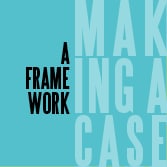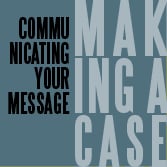- Heritage 101
- Advocacy
- Accessibility for Historic Places
- Climate & Sustainability
- Cultural Maps
- Heritage Place Conservation
- Heritage Policy & Legislation
- Homeowners
- Intangible Cultural Heritage
- Reconciliation
- Indigenous Cultural Heritage
- Setting the Bar: A Reconciliation Guide for Heritage
- 1. Heritage and Reconciliation Pledge
- 2. Acknowledging Land and People
- 3. Celebrating Days of Recognition and Commemoration
- 4. With a Commitment to Learn
- 5. Committing to Strategic Organizational Diversity
- 6. Mission-Making Room for Reconciliation
- 7. Possession, Interpretation, Repatriation and Cultural Care
- 8. Shared Decision Making
- 9. Statements of Significance and other heritage planning documents
- 10. Heritage Conservation Tools, Local Government Act
- Racism: Do Not Let the Forgetting Prevail
- Taking Action: resources for diversity and inclusion
Making a Case for Heritage: Approaching Influencers
It is not about you. It is about the person sitting across from you.
You care a lot about heritage and its significance is obvious to you. But that is not the case for everyone, and you should never assume others share or even understand your passion.
Here are some tips for building stronger relationships:
- Be respectful with everyone, including people who act as gatekeepers and mediators.
- Know the people you are meeting; understand their interests, priorities and platforms. Research politicians’ interests and platforms.
- Understand the roles and responsibilities of the people you meet. It is probably unwise to take the time of a city councillor when your issue is a federal funding problem.
- Get to the point; less is usually more when writing to or meeting with busy people.
- Ask questions to draw people into the conversation. A good starting point may be, “What does heritage mean to you?” You will immediately understand the commonalities and gaps that you can address in the meeting.
- Respect the allotted time period of a meeting.
- Always provide adequate time for responses – in fact, do not dominate the conversation but encourage a two-way conversation.
- Provide background material with information that cannot be delivered in the meeting timeframe and be prepared for follow-up questions.
- Close the meeting with a request or call to action.
- Take notes and follow up the conversation with a thank you email, repeating the outcomes or expected actions of the meeting.
- Think longer term – one meeting can be the start of a relationship.
A hard truth is: making a case is not actually about you and your organization. It is about helping others to find solutions for their needs and problems. For example:
Your mayor will likely be sympathetic when you say you are overworked and understaffed, but that has nothing to do with running a local government on a tight budget. But, if you can demonstrate how your museum draws people to your community and contributes to the quality of life and the local economy, you are supporting the mayor’s issues. Increased staffing means increased capacity and that might make good business sense for increased funding.
Advocacy for Arts Organizations: A Toolkit for Engaging in the 2018 Provincial & Municipal Elections (source)




